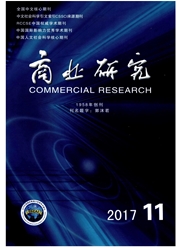

 中文摘要:
中文摘要:
随着中国人口老龄化程度不断加深,人口红利日益减弱;尤其在地区金融发展参差不齐的情况下,中国人口老龄化与FDI流入之间的关系变得更加微妙。在梳理人口老龄化和金融发展对FDI影响机制的基础上,本文利用面板门槛模型和2000-2014年中国的省际面板数据对其进行实证分析,发现人口老龄化对FDI流入具有显著的抑制作用,呈非线性负相关,且其抑制作用会因金融发展和地区的不同而存在较大差异。因此,及时调整人口发展战略、提高劳动要素生产率、深化金融市场改革,是中国应对人口老龄化、促进FDI流入的重要途径。
 英文摘要:
英文摘要:
The demographic dividend is waning with the deepening of population aging in China; especially in the case of uneven regional financial development,the relationship between population aging and FDI inflows becomes more subtle. Based on the mechanism that aging population and financial development affected FDI inflows,the paper uses panel threshold model and the interprovincial panel data from 2000 to 2014 in China to analyze the relationship between population aging and FDI inflows under the influence of financial development. The results show that population aging has significantly inhibitory effect on FDI inflows,which is different due to financial development and regions,but the aging population is nonlinearly negatively related to FDI inflows. Therefore,we should timely adjust population development strategy,improve labor productivity and deepen financial market reform in order to deal with China's population aging and attract more FDI inflows.
 同期刊论文项目
同期刊论文项目
 同项目期刊论文
同项目期刊论文
 期刊信息
期刊信息
